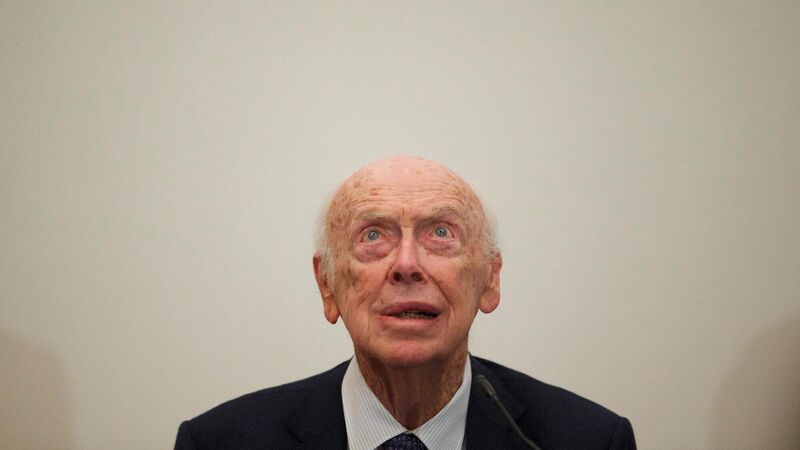James Watson, co-discoverer of double-helix shape of DNA, dies aged 97

James Watson. Picture: Ivan Sekretarev/AP
James D Watson, whose co-discovery of the twisted-ladder structure of DNA in 1953 helped light the long fuse on a revolution in medicine, crimefighting, genealogy and ethics, has died aged 97, according to his former research lab.
The breakthrough — made when the brash, Chicago-born Watson was just 24 — turned him into a hallowed figure in the world of science for decades.











